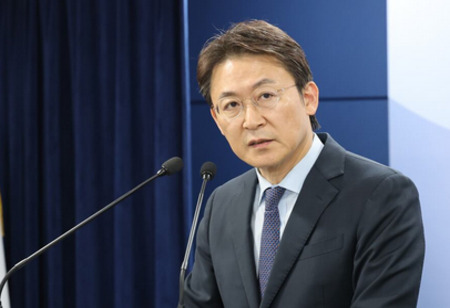
Financial Regulator Urges Petrochem Sector on Restructuring

 The financial regulatory authority announced that the struggling petrochemical industry must develop restructuring plans, including production reductions, to receive financial assistance.
The financial regulatory authority announced that the struggling petrochemical industry must develop restructuring plans, including production reductions, to receive financial assistance.
Kwon Dae-young, deputy chairman of the Financial Services Commission (FSC), stated that petrochemical firms have yet to present genuine, specific restructuring proposals, emphasizing that financial aid would be withheld without comprehensive action plans.
Earlier that day, 17 banks and government-backed policy lenders reached an agreement to offer financial assistance, such as reduced interest rates, extended loan terms, and new credit facilities, contingent upon the industry's voluntary restructuring efforts.
Also Read: India & Thailand Emerge as Asia's New Semiconductor Manufacturing Twins
The domestic petrochemical industry has been experiencing persistent oversupply conditions resulting in depressed pricing, particularly during the current economic downturn.
Authorities are pushing local companies within the sector to significantly reduce production capacity and optimize their business operations.
The banking sector entered into a voluntary pact to provide liquidity support for petrochemical companies that are expediting restructuring initiatives including facility mergers and shutdowns. The primary support measures encompass extending repayment periods, postponing interest payments, modifying interest rates, and providing additional capital.
Also Read: Behind the Lines of Indonesia's First High-Speed Railway System
The Korea Federation of Banks conducted an "industry restructuring support financial sector agreement ceremony" on the 30th at the Seoul Bankers Association Building, gathering creditor financial institutions that have extended loans to petrochemical companies. Seventeen banks participated alongside policy financial organizations including the Korea Credit Guarantee Fund (KODIT), Korea Technology Finance Corporation (KOTEC), Korea Trade Insurance Corporation, and Korea Asset Management Corporation (KAMCO), together with representatives from the Financial Services Commission and the Financial Supervisory Service.
Unlike restructuring under the Corporate Restructuring Promotion Act, a voluntary agreement lacks legal enforceability but provides flexibility for creditors and companies to make decisions while preserving the company's external credit standing.
Financial sector data shows that as of late June this year, South Korea's top 11 petrochemical companies owed banks a combined 32.8 trillion won in credit. Hanwha Solutions carried the largest debt burden at 8,477.4 billion won, with LOTTE Chemical at 7,092.7 billion won, S-OIL at 4,207.7 billion won, and DL Chemical at 2,995.2 billion won following behind.
Upon a petrochemical company's request for restructuring assistance, the primary creditor bank establishes a voluntary committee comprising creditor banks with outstanding claims against the company. The committee determines specific support measures for each company, requiring approval from creditors representing no less than three-quarters of the total claim value. Following assessment of feasibility and effectiveness through collaborative external due diligence, primary support mechanisms encompass loan maturity extensions, interest payment deferrals, interest rate modifications, and fresh capital infusions.
Also Read: More Middle Eastern Companies to Adopt Automation & Unification
To enhance support effectiveness, the banking industry suggested permitting asset quality classification improvements for debts subject to maturity extensions and interest rate modifications under such agreements. Financial regulatory authorities indicated that for financially stable companies, given that these measures aim to enhance profitability based on comprehensive self-rescue initiatives by the companies and their principal shareholders, asset quality classifications may be improved in accordance with banking supervisory guidelines.

